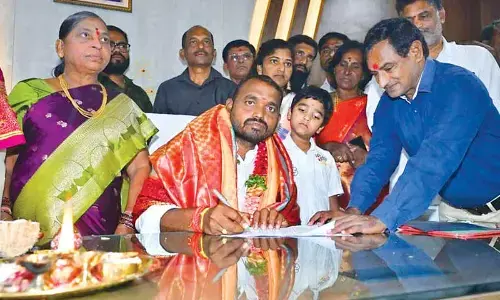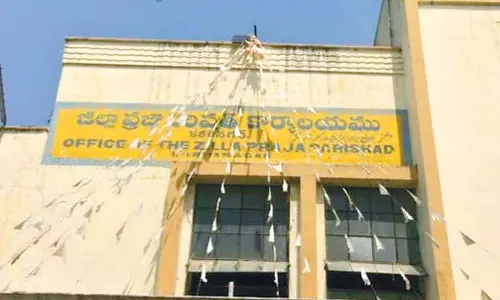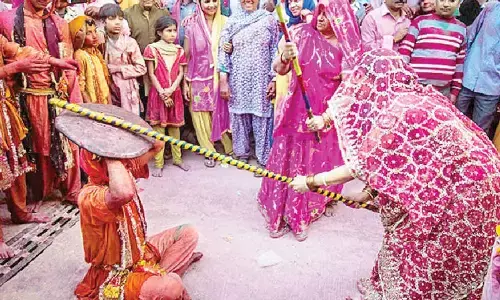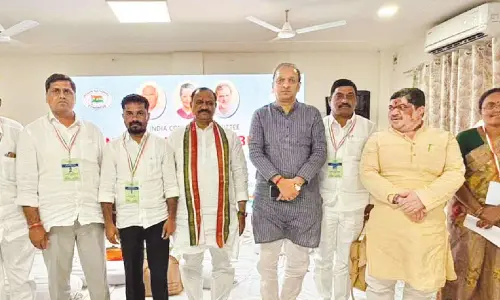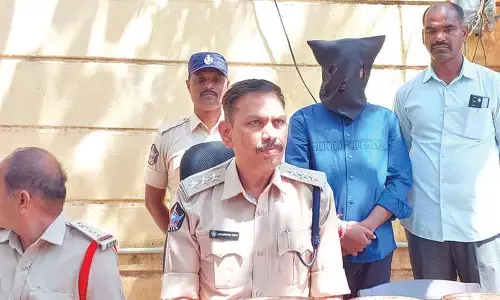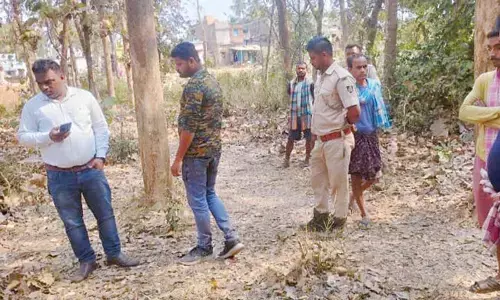Sita's Ordeal of Fire
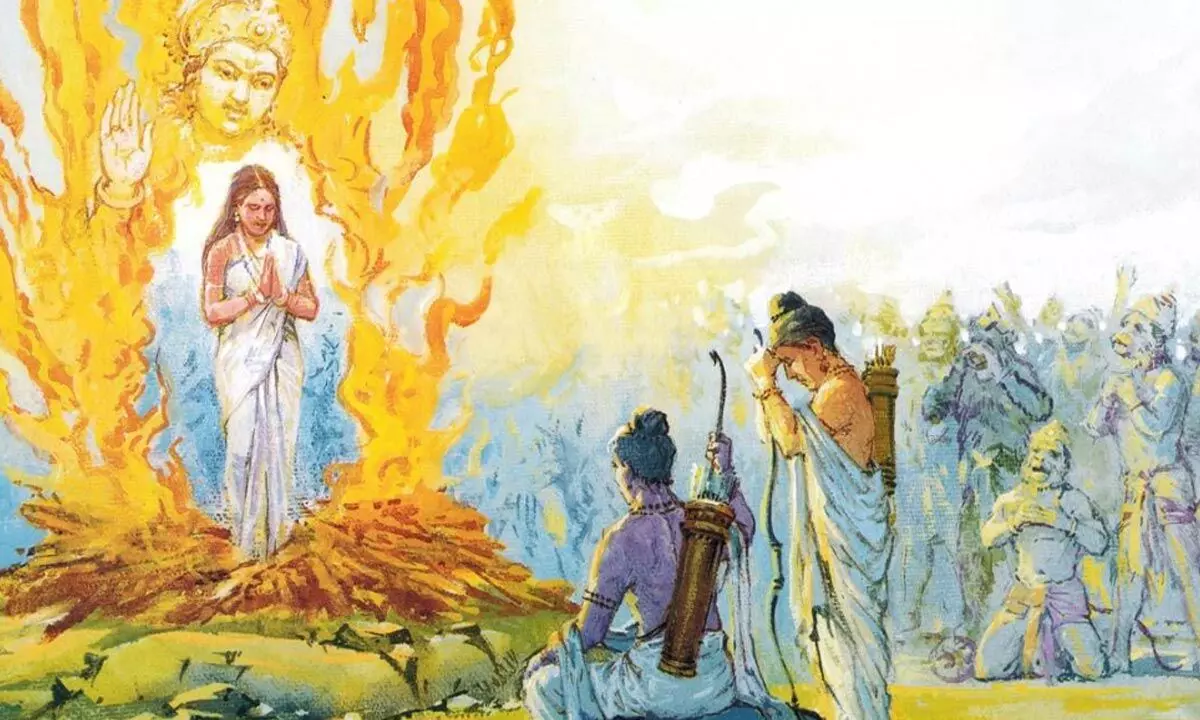
Sita’s Ordeal of Fire
Is Rama to be blamed for the agni-pravesa by Sita?
Is Rama to be blamed for the agni-pravesa by Sita?
After the death of Ravana a lay reader would expect Rama to immediately rush to the place where Sita was kept and take her into his arms. But would a mature reader accept such a happy reunion? Would it look alright for the people in Ayodhya?
The episode in the yuddha kanda makes a poignant reading. After the death of Ravana there are only two tasks for Rama. One is to meet Sita who has been languishing for him and the other is to install Vibhishana as the king. Rama takes up the easier task of crowning Vibhishana first (sarga 112). He asks Lakshmana to go to Lanka and coronate Vibhishana, as he himself is under a vow not to enter any city.
Vibhishana's coronation is done, and Hanuman is eagerly waiting by the side of Rama for his instructions about Sita. Here too we would expect Rama to rush to Sita's place instead of sending for her. Rama merely tells Hanuman "Take permission of the king Vibhishana, meet Sita and convey to her that we are all safe and that Ravana has been killed. You also get her message and come back." Hanuman does accordingly (sarga 113). Sita has nothing to convey except her desire to meet her husband immediately.
Hanuman comes back to Rama (sarga 114) and tells him about Sita's desire to meet him. Rama's eyes are filled with tears, and he gets into a thoughtful mood. He heaves a long sigh and looking at the ground he asks Vibhishana to bring Sita after getting her bathed, and getting anointed with divine perfumes, dressed and decorated with exquisite ornaments.
This looks a very innocuous direction, but Rama has a deep thought behind it. Commentators Govinda Raja and Mahesha Tirtha explain the reason. Rama is going to make an unpleasant and harsh proposal to her. It would be unfair to speak harshly to a woman in a pitiable condition.
If he accepts her as she is in a very pitiable condition, it would be acceptable to the immediate audience, Vibhishana, Sugriva and others. But back in Ayodhya she would always be in her royal splendor with regal dress and ornaments. People there would have a lurking doubt in their minds "Oh what a beautiful woman! How would Ravana keep quiet having kept her in his custody?" If, on the other hand, such an idea comes in the minds of onlookers in Lanka, then the harsh words which Rama is going to speak would be understandable. Hence, he asks Vibhishana to bring her in her royal attire so that the onlookers too would get a suspicion about Sita. In other words, Rama wants such doubt to arise in the minds of the onlookers. That would justify his harsh words which are going to ensue.
Rama knows that Sita is pure but if he accepts her, he has to face such public criticism "lokāpavāda". If he does not accept her, it would be injustice to her. So, he has to take her back with public approval of her chastity.
If Rama were to be an ordinary person, he could take her back without any problem. But he is a king, and the queen has to be accepted by the people also. As his wife she would be taking part in all yajña-s and public functions. Hence her purity should be known to the world.
In any story the reader knows all about different characters but the characters themselves do not know about other characters. Here too the reader is aware that Sita is chaste because he has been seeing her all through. The reader has seen how Ravana was making overtures to Sita and how Sita was rejecting him. The reader also knows how Sita was filled with anguish. In Ramayana it is only Hanuman who knows it but not even other vanara-s. Hence even the vanara-s have to be convinced about her purity.
Rama is in a helpless condition. We see how dharma makes a person helpless in personal relations. Vibhishana does not understand all this. He merely goes to his palace and with the help of the palace women he gets Sita dressed up and brings her to Rama in a palanquin. He walks slightly ahead and tells Rama about her arrival. Rama's mind is filled with mixed emotions.
Happiness, helplessness, and anger were the three emotions which came upon him. Happiness is because Ravana is dead, and Sita is rescued. Helplessness is because he cannot take her back because she was detained in the abductor's house for about a year. Helplessness is also because Rama is intending to make a harsh proposal to Sita now. Rama knows that Sita is pure, but he is helpless to prove it to people who would keep suspecting her chastity.
Anger is because of such helplessness and because he is forced to be harsh to her to prove his own righteous conduct. Commentators point out that Rama is angry because Sita suspected Lakshmana, sent him away by using harsh words against him and got into this trouble. We can understand that all these emotions have clashed in the mind of Rama. Rama is following the principle that justice should not only be done but appear to have been done. Thus, in this context, Rama's anger is helpless anger. He looked at her who was dearest to his heart, but his heart was rent into two because of fear of scandalous talk among the people if he were to take her back. He goes on to tell her that he has discharged his duty as a kṣatriya by rescuing her from the abductor. He has also acted on the abductor. He says, "Today my valor is proved, and I have achieved my task. The insult done to me by Ravana has been wiped off. I have won you back to redeem my honor and the honor of my family. He further says – "Your character stands in doubt, and you are unbearable to me like a bright lamp to a person with eye disease (netra dosha)".
The simile used by Valmiki (or by Rama) is significant. If a person suffering from eye disease cannot see a lamp, it is not fault of the lamp, but it is the fault of the onlooker. Valimiki (or Rama) is suggesting that Sita is pure, but the vision of onlookers is bad. The use of the word netram describes the unenviable position of Rama. The meaning of netram is 'that which leads and protects'. Eye is that which leads us on our path and protects from falling into pits. In the present context Rama has the disease of the eye, and he cannot decide the course of action. He has vanquished the enemy, but he cannot take back Sita immediately without attracting opprobrium from people. His heart is torn by mixed emotions. Rama continues, "Oh daughter of Janaka! You are free to go anywhere". Here too the suggestion is that she can go back to her parents. Rama further says, "No self-respecting person can take back a woman who has been in the enemy's house for a long time. You may take shelter with Lakshmana or Bharata or Satrughna or Sugriva or Vibhishana".
Rama's statement is explained by the commentators. According to dharma of the day a woman separated from her husband could stay in a relative's place where she could stay with self-respect. Commentators add that Lakshmana and others mentioned by Rama are people who would treat Sita like their mother and hence she can stay in their protection.
During the entire episode Lakshmana, Sugriva, Vibhishana and others keep wondering whether Rama really loved Sita. Perhaps they could not fathom Rama's helplessness as a person walking the path of dharma. Dharma makes people in high places helpless in personal affections and relations.
Sita is also from a royal clan. The fact that she is a virtuous woman does not mean that she is a spineless, docile woman. She too speaks harshly to Rama, "Oh hero! Why do you speak such harsh words to me in an unbecoming manner like an uncultured man speaking to an uncultured woman?" She adds, "seeing the conduct of low women you are blaming the entire sex (116-7). In your anger you have acted as a petty person treating me as an ordinary woman (14). Though I am known as the daughter of Janaka, I am born directly from the earth (15)".
However, as the daughter of righteous king Janaka, she realizes the predicament of Rama and her duty as a queen. She reads Rama's heart. She comes to the rescue of Rama and resolves the problem of Rama just as Rama himself had resolved the problem of his father when Dasaratha was torn between satyam and dharma while sending Rama to forest. Rama took upon himself the hard option of going to forest to make his father's word true. Here too, Sita is doing a similar act. She realized that Rama wanted her to prove her chastity to the world, which has the eye disease. Sita's immediate decision was to enter fire to prove her chastity. She asked Lakshmana to prepare fire. Lakshmana angrily looked at Rama, but Rama's face was like that of Yama at the time of pralaya. Lakshmana did not dare speak to him, but he thought that Rama did not oppose the idea. He prepared the fire accordingly.
Proving one's innocence by touching fire or entering fire was prevalent in all cultures in olden days. It was known as ordeal by fire. The reader wonders whether Rama too expected her to enter fire because he knew that Sita was pure, and fire would not harm her. Even Hanuman knew that. He told in the Sundara Kanda – "fire would not harm fire" at the time when he burnt the whole of Lanka and was confident about the power of austerity of Sita.
Valmiki's words are significant. Fire is called havya-vāhana, a person who carries oblations to gods (116-19). The suggestion is that Sita is as pure as the oblations offered to gods. While entering fire Sita holds Agni, Vayu, Varuna and all other gods as witnesses to her virtuous character and says that the Agni would protect her if she were to be chaste. She then enters fire offering herself as a pūrṇāhutī, the final oblation at the end of a yajña.
Lakshmana and others are too scared even to look at Rama, leave alone stopping him from allowing such a drastic step by Sita.
A lay reader would not understand the mind of Rama. As a later playwright Bhavabhuti said about Rama, "Who would fathom the minds of exceptional persons which are tougher than a diamond and softer than a flower?"
(The writer is an IPS, Former Director-General of Police united Andhra Pradesh state)



